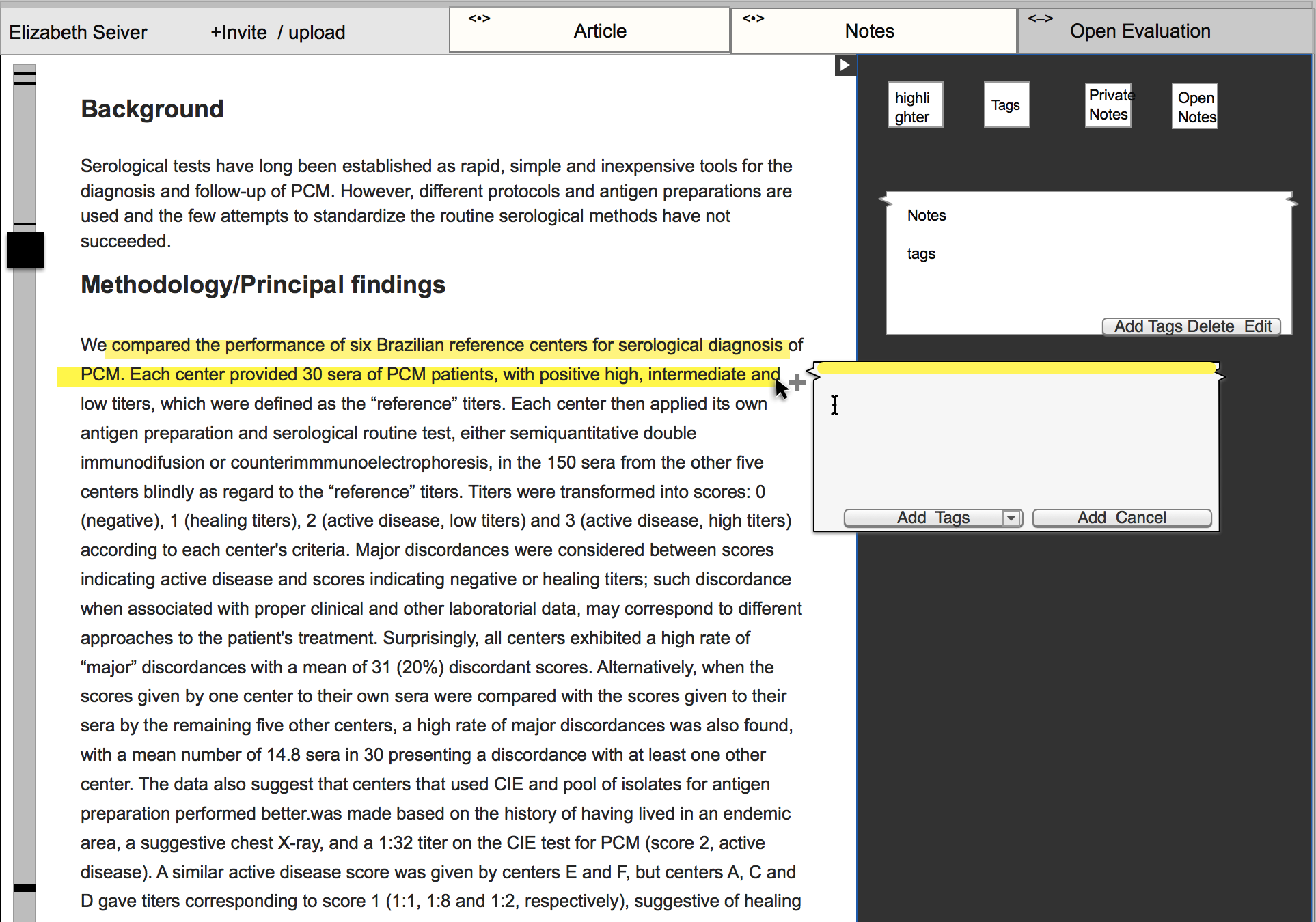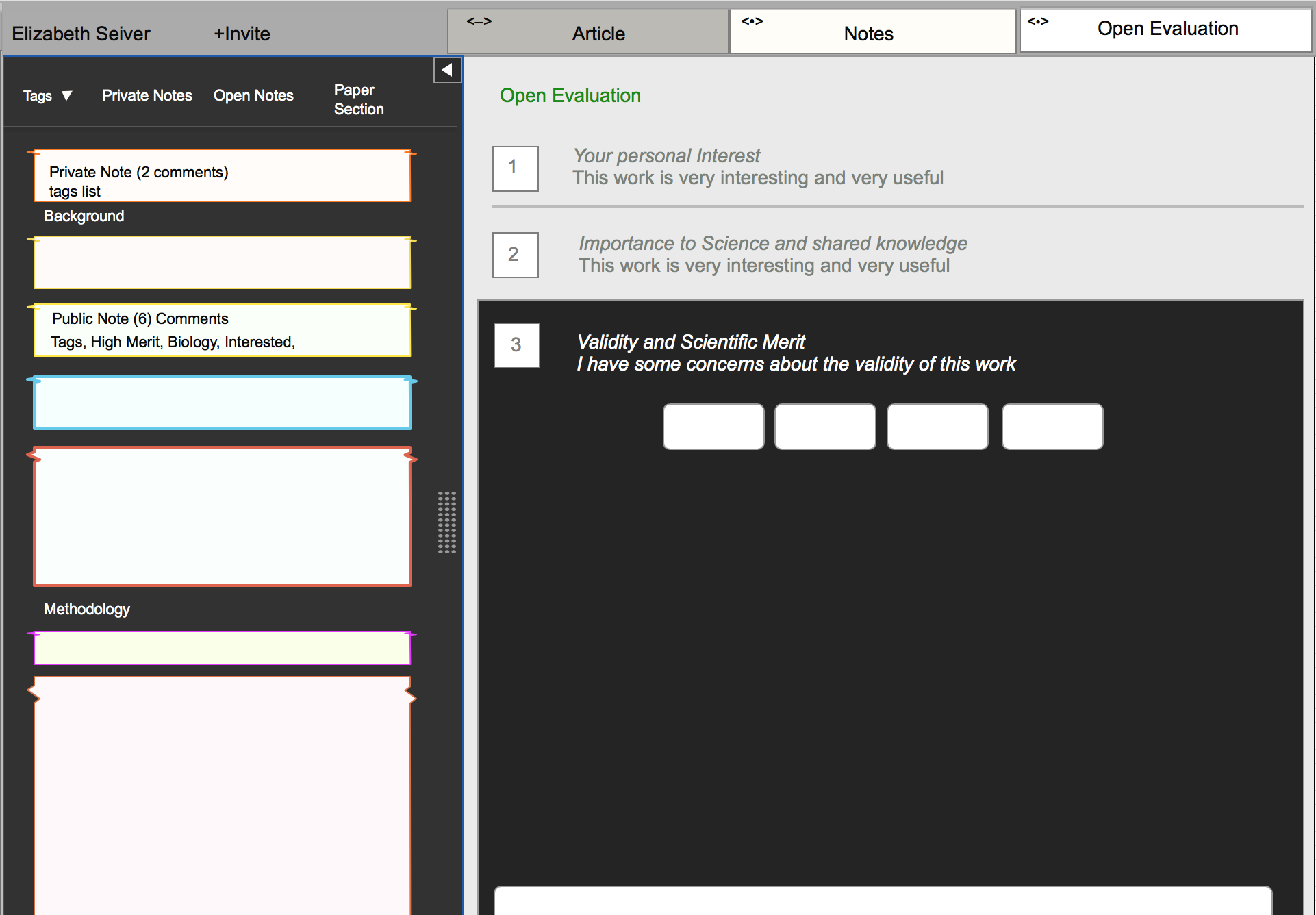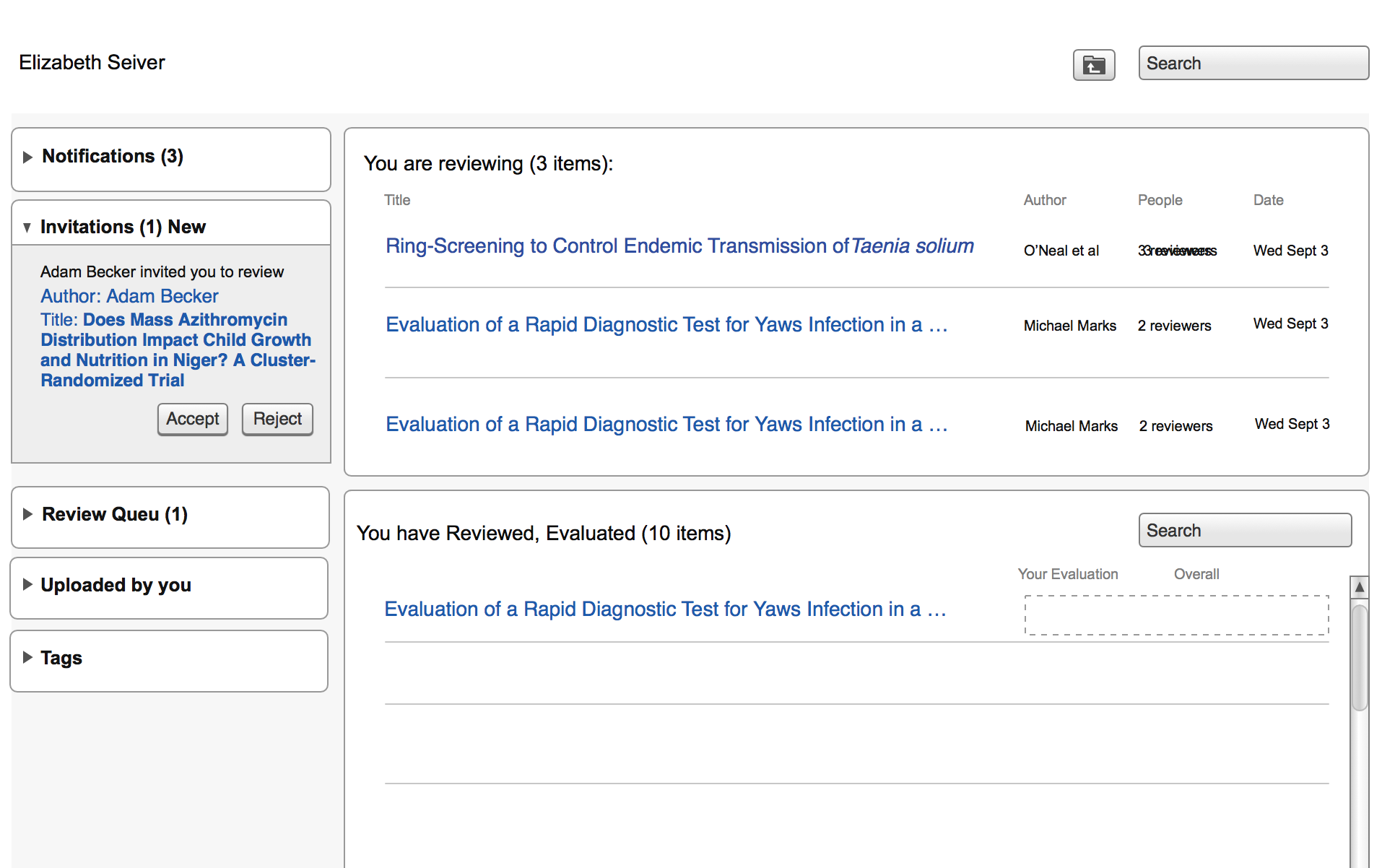Role: Lead UX Designer, Design Researcher
PLOS Labs was the ideation incubator for Public Library of Science (PLOS). Together with a team of five people including researchers and developers, we had the mission of pioneering in developing new ways for advancing and enhancing the scientific communication. We worked with the life science research community to prototype, test, and build tools for science and scientific publishing.
Rich Citations make references provide a diverse set of information about how and were two pieces of research are connected. We built a prototype overlay for PLOS journal articles using the rich citations API. The overlay makes the list of references a powerful research tool in itself, demonstrating the advantages of rich citations:
References can be sorted along several axes, including date and number of mentions;
Explicit labels for self-citations, retracted papers, and updated papers;
Easier navigation between the citations within the paper and the reference list at the end;
More information about citations is available without having to jump down to the list of references;
The reference list contains contextual information about the locations within the paper where references are cited.
Reviewers' Tool and Open Evaluation:
What is the reviewers' experience in reading, evaluating, and commenting on a paper? Is it possible to make the process open to the authors and the public?
To answer this question we interviewed nine scientists and observed three to get familiar with their peer review process.
The problem: The review process is time consuming, not structured, and the reviewers are using old fashion methods for peer review.
The proposal: we wire framed a modern tool that allows the reviewer to read, highlight, annotate, use a structured evaluation system, and leave notes. More over, the reviewer can access all the papers that they are invited to review in one place.
We also suggested the process of evaluation to be Open. Open Evaluation is a quick evaluation add-on system that allows the author to have an idea of the progress of the paper through the peer review process. The suggestion is to immediately publish the review and make it open to the researchers as well as the public. We distilled the evaluation process into a few key feedback areas, including scientific merit, clarity, and the importance of the findings.
Learnings: We put this tool in front of eight life science researchers, they all agreed that the tool does indeed make the process faster, they were fascinated by the idea of a central space for their reviewing paper, and the majority of them found this tool a unique one that helps them save time. But their bigger question and hesitation was around providing access to the reviewer’s notes and the evaluation. As it seemed the scientific society does not seem entirely ready for opening the process to the public. This project made it possible for the scientists to see the possibilities and have a more serious conversation about the Open Access culture.






